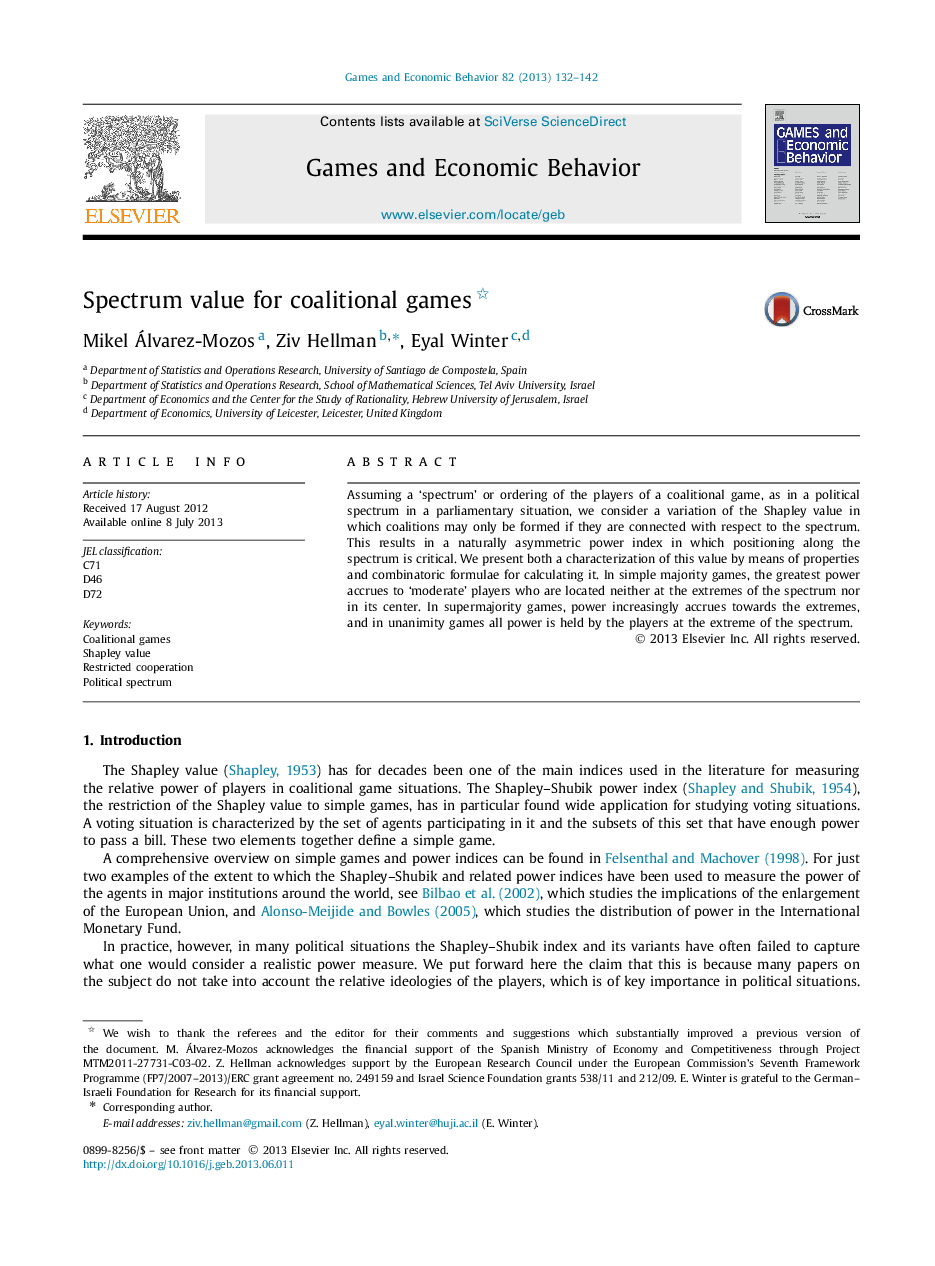| Article ID | Journal | Published Year | Pages | File Type |
|---|---|---|---|---|
| 5071762 | Games and Economic Behavior | 2013 | 11 Pages |
Abstract
Assuming a 'spectrum' or ordering of the players of a coalitional game, as in a political spectrum in a parliamentary situation, we consider a variation of the Shapley value in which coalitions may only be formed if they are connected with respect to the spectrum. This results in a naturally asymmetric power index in which positioning along the spectrum is critical. We present both a characterization of this value by means of properties and combinatoric formulae for calculating it. In simple majority games, the greatest power accrues to 'moderate' players who are located neither at the extremes of the spectrum nor in its center. In supermajority games, power increasingly accrues towards the extremes, and in unanimity games all power is held by the players at the extreme of the spectrum.
Related Topics
Social Sciences and Humanities
Economics, Econometrics and Finance
Economics and Econometrics
Authors
Mikel Álvarez-Mozos, Ziv Hellman, Eyal Winter,
